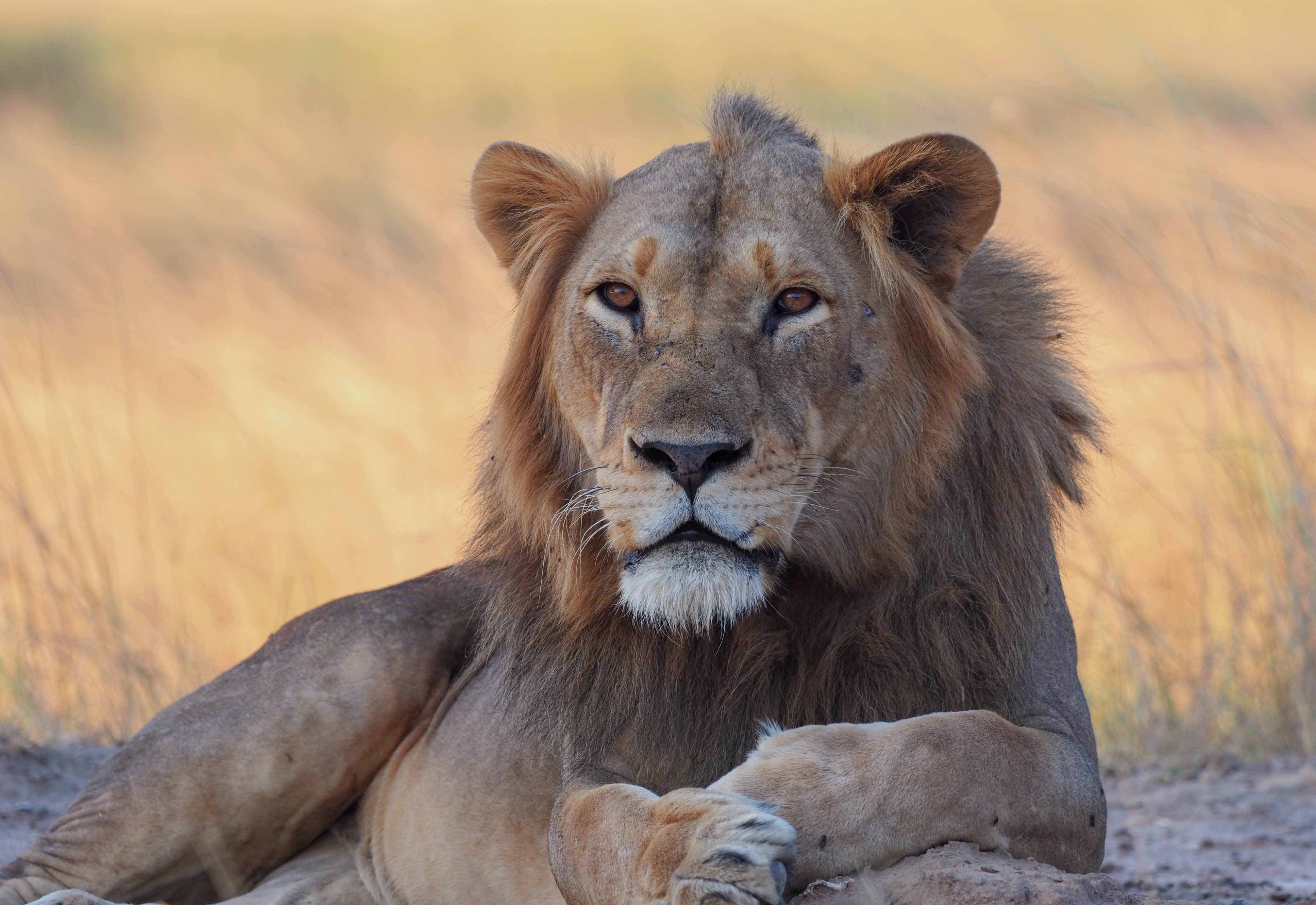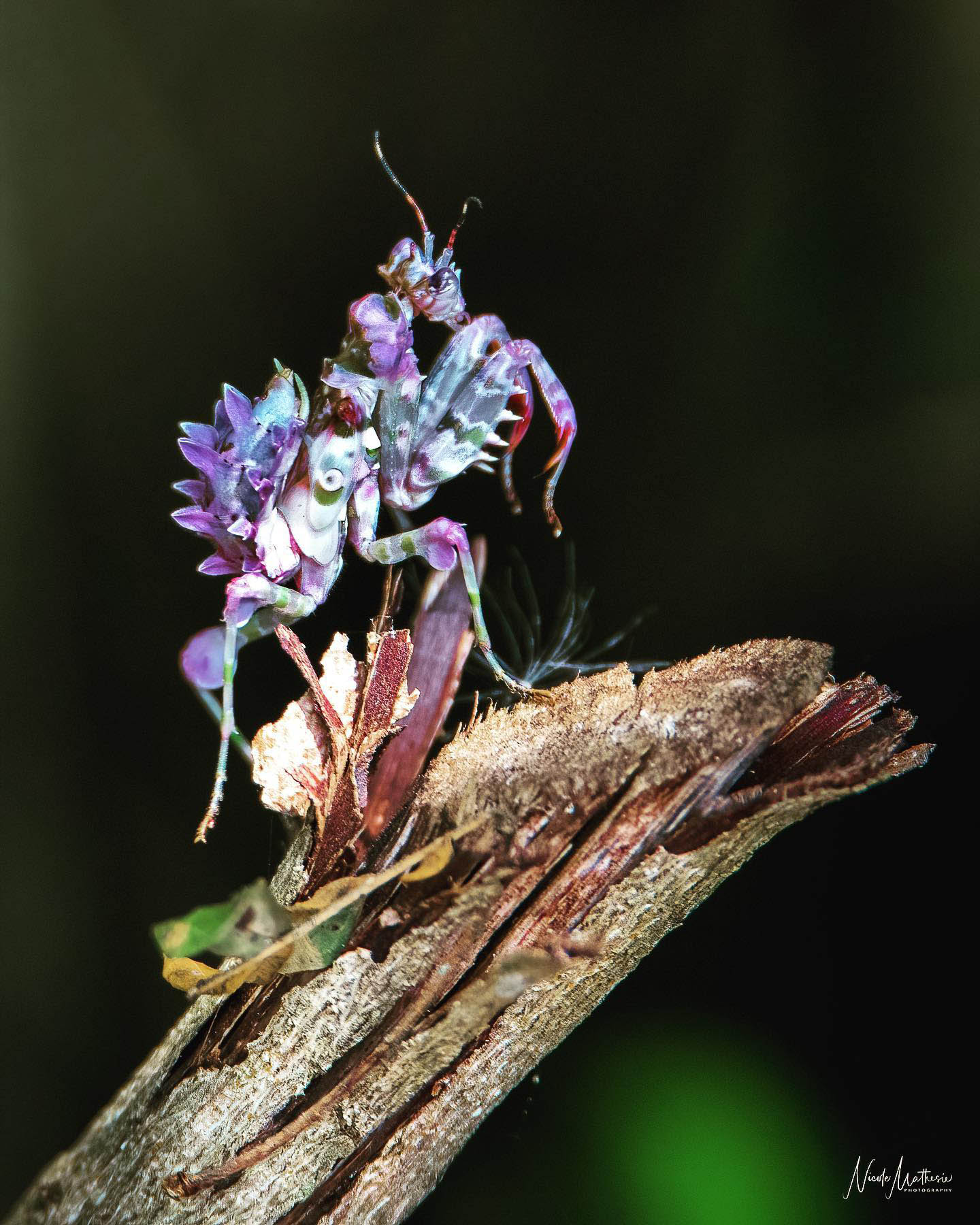Jasiri, Mandela, and Olmoti successfully completed their adaptation process and were released into the park after six months of acclimatisation. This release was carried out gradually and cautiously, with a dedicated team of trackers closely monitoring their transition into the wild. Over time, these three rhinos fully adjusted to their surroundings and transformed into completely wild animals by early 2022. The birth of a calf is an indication of success for the translocation. The calf is Jasiri’s first, making the birth all the more exciting.
Staff news
As Wilderness Tanzania prepares for the opening of its new camp, five of their team members had the opportunity to visit Rwanda and get a feel for what the Wilderness Way is all about.
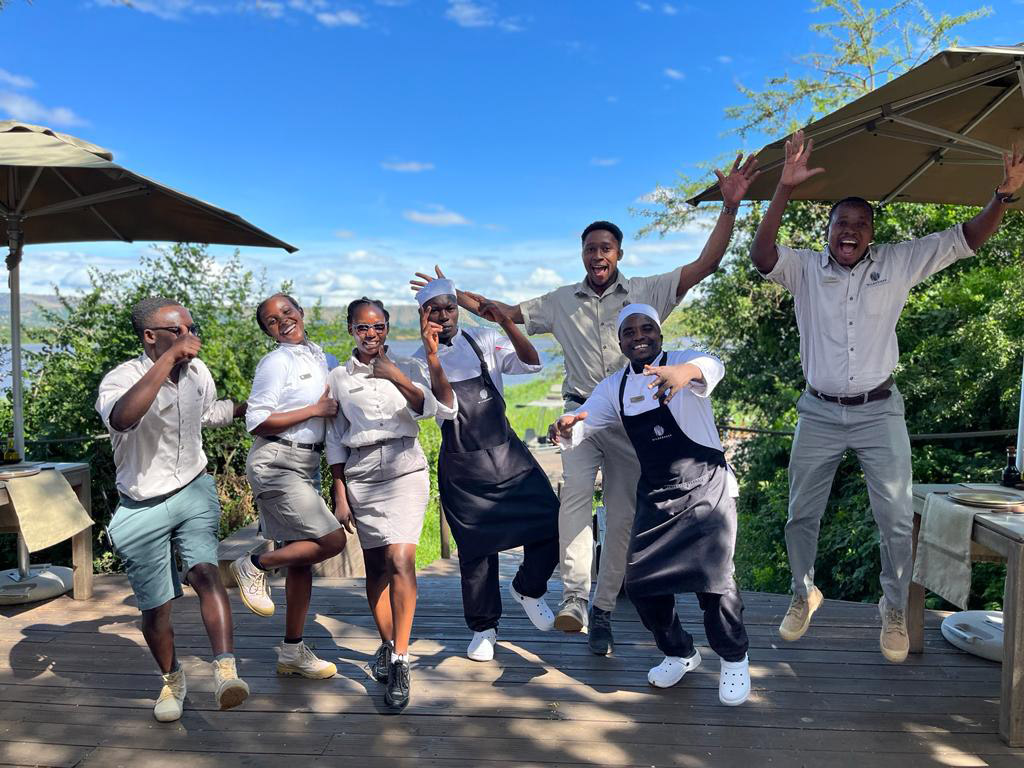
Wilderness Usawa Serengeti Camp Manager, Jaffary Saimon Mhina, had the opportunity to spend several weeks in Rwanda, and joined the management teams at Magashi and Bisate, with a short visit to Sabyinyo. The Wilderness Tanzania Service Team members, Peter Ombeni, Yudas William Msofe, George Balton and Jimson Msigwa, all had a chance to work with the Magashi Service Team for several weeks.
We enjoyed that our colleagues from a neighbouring East African country were a part of our team for a couple of weeks, and we wish them all the best with the upcoming season!
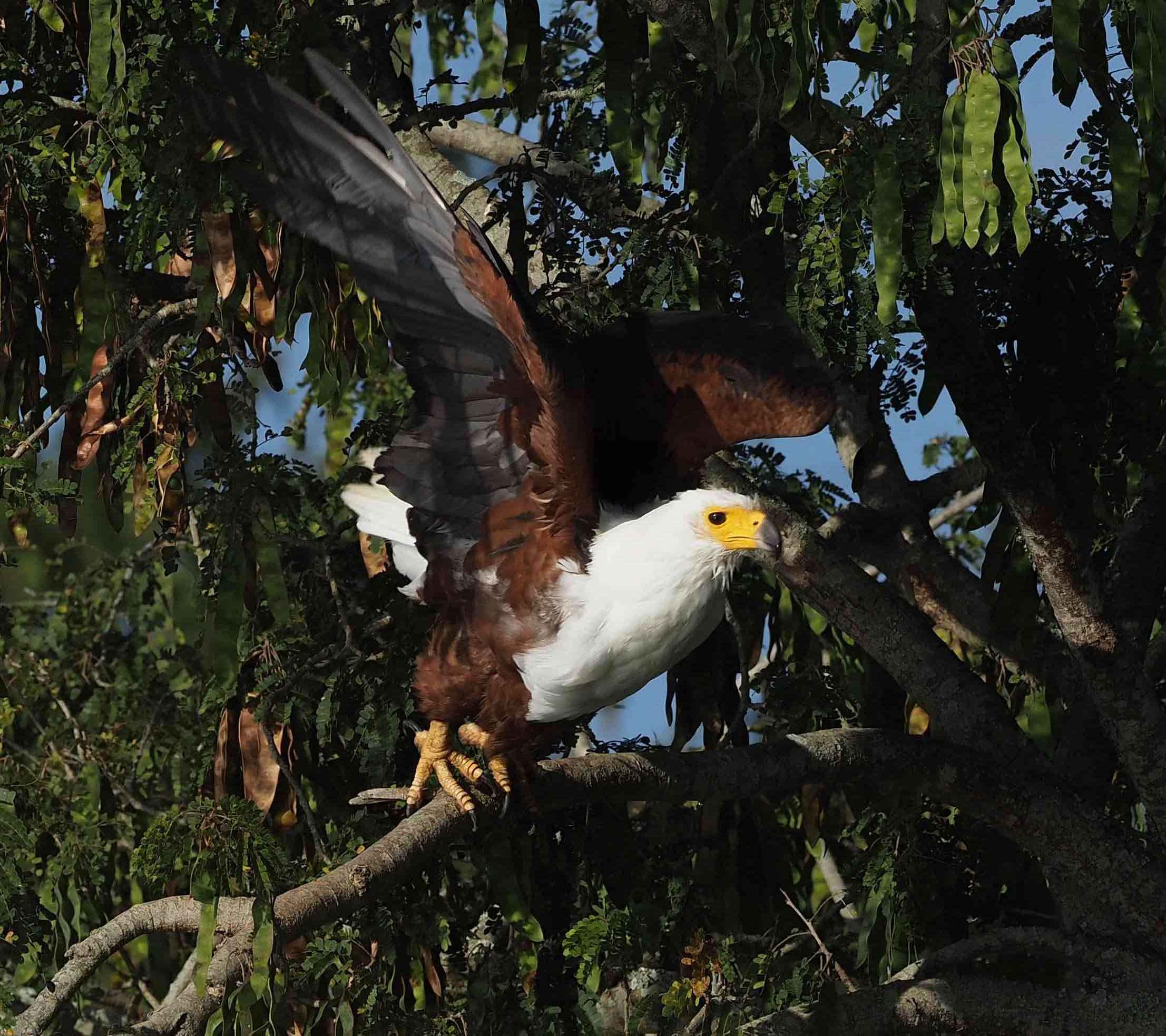
Rwandan scholarship students end their school year with a big THANK YOU!
July marks the end of the Rwandan school year, and all 140 CITW students who are being sponsored for six years of schooling wrote letters to thank their donors for the support. A big pile of letters reached our office this week!
What a joy to read through the letters and realise how much this support impacts the students and the schools.
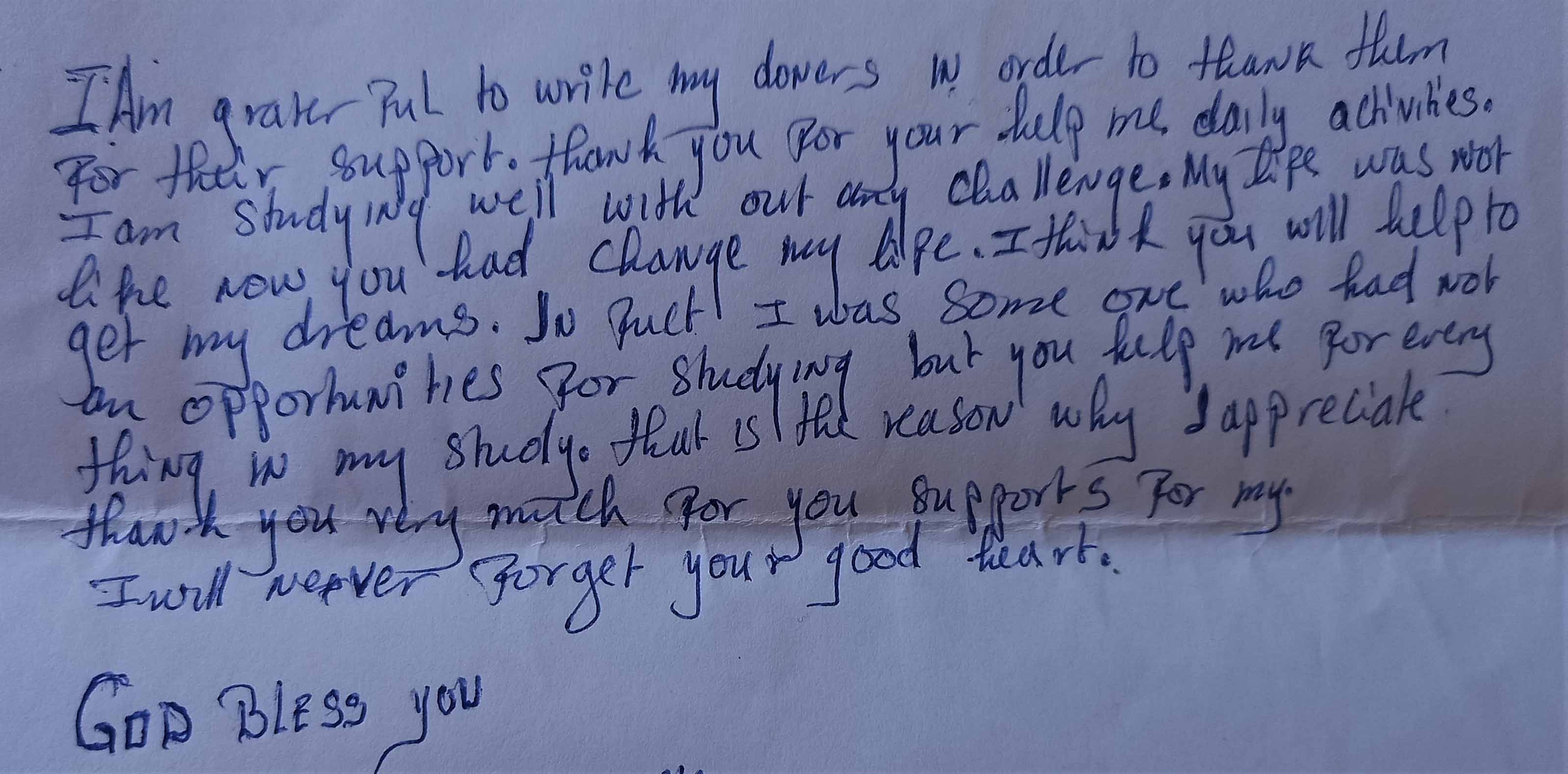
The scholarship students attend the three secondary schools CITW Rwanda is partnered with. A staggering 108 students are supported in their studies at Bisate Secondary School (close to Wilderness Bisate), while 16 scholarship students attend Rwabiharamba Secondary School in the area just outside Akagera National Park, where Wilderness Magashi is located. Sixteen Kinihira Secondary School students from the community close to at Gishwati Forest are also sponsored.
The scholarships are valued at USD1 800 per student for the duration of the six years. Included in the scholarship are the school fees, lessons and study materials, school meals and school uniforms. Over the years we have noticed that this is one of the most impactful ways to support not only a child, but also their family and the surrounding community.
First of all, the child has the opportunity of a bright and educated future; secondly, the family has financial relief, and these finances can be used for other necessities or to support other children in their education; and lastly, the community at large benefits, especially if more students from the same community receive the sponsorship. We have noticed a positive shift in the villages where the whole community starts to see the importance of education and conservation.

The funding for these 140 scholarships is generously provided by Wilderness Bisate, Sabyinyo and Magashi guests and trade partners. We are hoping to grow our support for the 2023-2024 school year and that we will be able to fund many more scholarships!
Our CITW Rwanda team, the various Community Committees, Eco-Club mentors and the Heads of the schools carefully chose the learners on the basis of academic merit and participation in their Eco-Clubs (CITW’s interactive, fun and educational environmental skills programme for primary school children). In order to retain the scholarship in each grade, learners must maintain good academic results, while showing dedication, motivation and good behaviour. CITW Rwanda Programme Co-ordinator, Aline Umutoni, monitors the progress of each learner on a regular basis.
“It is fantastic to read all the letters and see the appreciation that the children show to their donors. They mention things like ‘you changed my life’ or ‘I will never forget the support and hope to do this for someone else one day’. It shows that the children are willing to work hard to make the most of this opportunity”, mentioned Aline, after reading the thank you letters.
The schools will reopen in September 2023 for the new school year.








